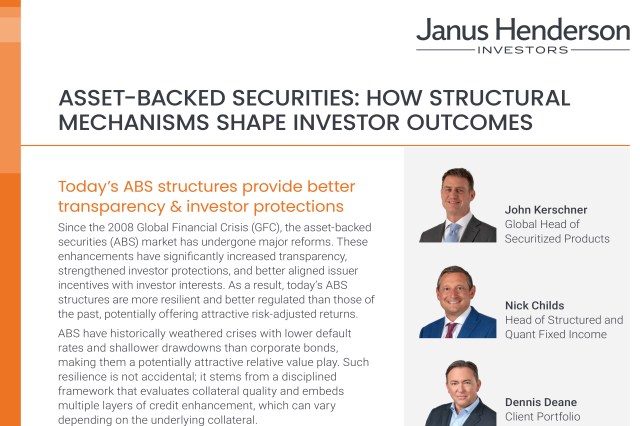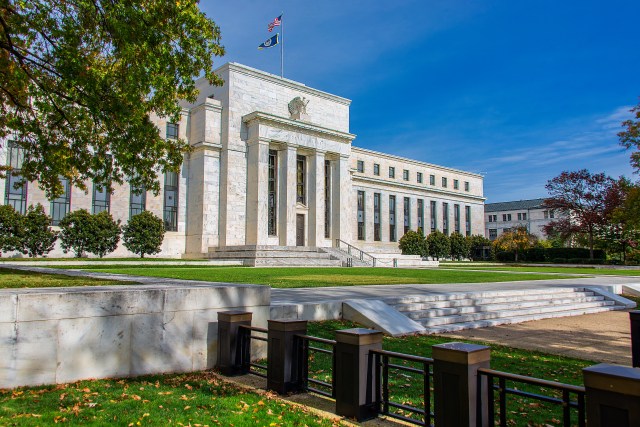The election outcome therefore does not change already improving economic fundamentals for Costa Rica; rather, it makes the positive credit story more credible.
Insights
Our latest thinking on the themes shaping today’s investment landscape. Explore timely updates, quarterly features and in-depth analysis straight from our experts.
Today’s ABS structures provide better transparency and investor protections.
Discussion on value opportunities in credit, collateralised loan obligations and mortgages, and why really understanding each credit will be pivotal in 2026.
A monthly market update featuring global equity and fixed income performance, sector and asset class trends, and key themes shaping the investment landscape.
Why active management, fundamental research, and selectivity across sectors are key to identifying opportunities while managing volatility in fixed income.
What Trump’s nomination of Kevin Warsh as the next Fed chairman could mean for markets and the future path of monetary policy.
As we navigate emerging bifurcation and increasing opportunities, we look at the sectors and themes like AI that are driving our asset allocation and security selection.
A stabilizing U.S. labor market gives the Fed room to wait and see whether inflation resumes its downward path.
Four reasons to be bullish on MBS in 2026.
As the Trump administration enters its second year with a focus on affordability, investors must consider what the president’s latest policies will mean for markets.
Not all private credit is created equal. Asset-backed lending offers transparency and resilience, challenging bubble fears and delivering stability in volatile markets.










